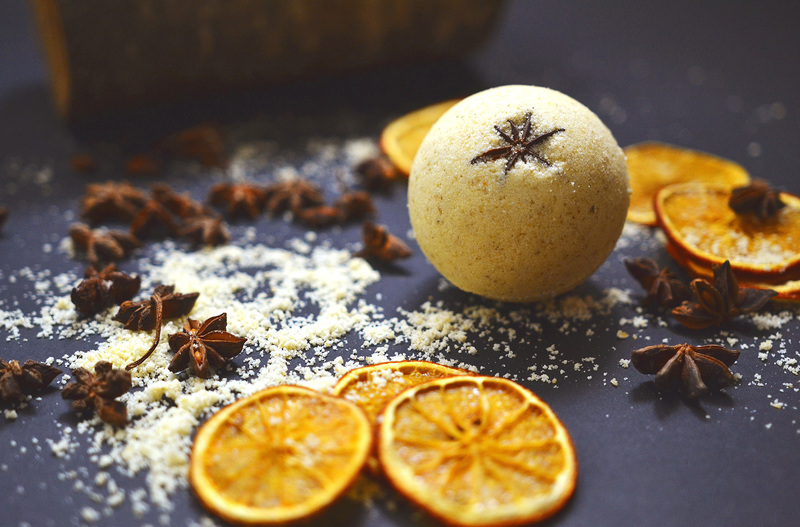Secrets to Successfully Clear Musty Smells
Posted on 18/08/2025
Unveiling the Secrets to Successfully Clear Musty Smells from Your Home
A musty smell in your home can be unpleasant, embarrassing, and even detrimental to health. Whether it lingers in your basement, attic, or living spaces, understanding how to clear musty odors is essential for creating a fresh and inviting environment. In this comprehensive guide, we'll reveal actionable secrets to not only eliminate musty scents but also prevent them from returning.


Table of Contents
- Understanding Musty Smells
- Common Causes of Musty Odors
- Initial Assessment and Detection
- Proven Methods to Clear Musty Smells
- Preventive Measures
- Natural Solutions for Eliminating Musty Odors
- When to Seek Professional Help
- FAQs About Clearing Musty Smells
Understanding Musty Smells
The term musty smell typically refers to a stale, damp, or moldy odor that permeates a space. These odors can result from excess humidity, water leaks, poor ventilation, or organic materials breaking down. Not only can musty odors make your home uncomfortable, but they may also indicate underlying issues such as mold contamination, which can negatively impact your health.
Why is Addressing Mustiness Important?
- Health Risks: Prolonged exposure to mold and mildew spores can cause allergies, respiratory issues, and skin irritation.
- Property Value: Homes that harbor persistent musty odors may decrease in value and deter potential buyers.
- Quality of Life: Clearing unwanted odors creates a more pleasant and livable space for your family and guests.
Common Causes of Musty Odors
Identifying the root cause of the musty odor in your space is crucial for long-lasting solutions. Here are the most frequent sources behind persistent musty smells:
- High Humidity: Excess moisture in the air promotes mold and mildew growth, leading to musty scents.
- Water Leaks: Leaking pipes, roofs, or appliances can saturate building materials, providing a haven for bacteria and fungi.
- Poor Ventilation: Insufficient air flow prevents damp areas from drying, trapping humidity and odors.
- Basements & Crawlspaces: These areas are prone to moisture infiltration and can harbor must and mold if not maintained.
- Neglected Fabrics: Carpets, curtains, upholstery, and even clothing can absorb and retain musty odors when exposed to dampness.
- Old Books, Papers, and Wood: Organic materials can give off musty odors as they decompose under humid conditions.
Initial Assessment and Detection
To clear a musty smell from your home, start by conducting a thorough assessment. Here are steps to pinpoint the source more efficiently:
- Sniff Out the Problem: Walk through your home, taking note of where the odor is most noticeable. Pay close attention to basements, closets, and unused rooms.
- Inspect for Mold: Look for visible signs of mold or mildew on walls, ceilings, fabrics, and wooden surfaces. Mold may appear as dark spots or fuzzy growth.
- Check for Moisture: Feel for dampness on carpets, floors, and walls. Use a moisture meter to identify hidden dampness behind surfaces.
- Review HVAC Systems: Air conditioning systems, vents, and filters can harbor mildew if not cleaned and maintained regularly.
- Look for Water Intrusion: Examine areas around sinks, tubs, windows, and the foundation for signs of leaks or water stains.
Accurately identifying sources of mustiness sets the stage for effective odor removal.
Proven Methods to Clear Musty Smells
1. Deep Clean Problem Areas
- Wash affected walls and floors with a solution of water and mild detergent.
- Use white vinegar or hydrogen peroxide to disinfect and tackle mold (always test on small areas first).
- Steam clean carpets and upholstery to remove embedded odors and contaminants.
2. Remove and Replace
- Discard heavily contaminated fabrics, paper, or cardboard items.
- Replace water-damaged drywall, insulation, or ceiling tiles if cleaning isn't sufficient.
3. Enhance Air Circulation
- Open windows and doors to allow fresh air inside.
- Use fans, dehumidifiers, or air purifiers to reduce humidity and filter out musty particles.
- Consider installing vents or exhaust fans in moisture-prone areas.
4. Address Mold and Mildew Directly
- Scrub small areas of mold using a mixture of 1 cup bleach to 1 gallon water; wear protective gear and ventilate well.
- For extensive mold growth, consult a professional remediation service.
5. Clean and Replace Air Filters
- HVAC systems can recirculate musty odors if not regularly maintained.
- Change or clean filters every few months to maintain clean, fresh airflow.
Preventive Measures: Keeping Musty Odors at Bay
The best way to keep musty smells from returning is to control moisture and improve ventilation. Here's how to maintain a fresh, odor-free home:
- Maintain Low Humidity: Aim for indoor humidity levels between 30%-50%. Use dehumidifiers in damp environments.
- Seal Leaks Promptly: Repair leaking taps, pipes, roofs, and foundation cracks quickly to prevent lingering moisture.
- Ensure Proper Drainage: Keep gutters and downspouts clear. Slope landscaping away from the foundation.
- Rotate and Clean Fabrics: Regularly clean and air out carpets, bedding, and curtains, especially during humid seasons.
- Store Goods Safely: Store paper, textiles, and wood off the ground and away from basement walls to prevent moisture absorption.
- Ventilate Regularly: Air out your home, open closet doors, and run bathroom or kitchen fans when cooking or showering.
Natural Solutions for Eliminating Musty Odors
Looking for green and non-toxic ways to remove musty smells naturally? Try these time-tested remedies:
- Baking Soda: Sprinkle baking soda on carpets and upholstery, let sit for several hours, then vacuum thoroughly to absorb odors.
- White Vinegar: Set bowls of vinegar in musty rooms overnight to neutralize lingering scents. It also works as a cleaning agent for hard surfaces.
- Activated Charcoal: Place charcoal pouches or trays in affected areas to trap airborne particles and odors over time.
- Essential Oils: Add a few drops of tea tree, eucalyptus, or lavender essential oil to a diffuser to impart a fresh scent and inhibit fungal growth.
- Lemon Juice: A natural antibacterial and deodorizer, lemon juice can be added to cleaning water for scrubbing surfaces.
- Houseplants: Certain plants, like spider plants and peace lilies, naturally purify indoor air, helping eliminate musty odors over time.
When to Seek Professional Help
If you've tried multiple methods and persistent musty smells remain, it may be time to consult with a specialist. Here are some signs that professional intervention is necessary:
- Large-scale Mold: Visible mold covers areas larger than 10 square feet.
- Recurrent Odors: Smells return shortly after cleaning, indicating hidden contamination or moisture.
- Health Concerns: Household members experience unexplained allergies, asthma attacks, or irritation.
- Structural Damage: Warped floors, bulging walls, or stained ceilings suggest serious water and mold issues that require expert attention.
Professional odor removal and mold remediation services use advanced detection tools, industrial cleaners, and air treatments that are often more effective than household methods.
FAQs About Clearing Musty Smells
What causes musty odors in a clean house?
Even in clean homes, hidden moisture or inadequate ventilation can lead to musty smells, especially in areas like basements or closets.
How can I clear musty smells from furniture?
Place affected furniture in the sun to dry, vacuum thoroughly, and clean with a mild soap solution. Use baking soda or vinegar spray for fabrics. For persistent smells, professional upholstery cleaning may be required.
Is a musty smell dangerous?
Prolonged exposure can aggravate allergies and respiratory conditions, especially if mold is present. It's essential to address it promptly.
Can air purifiers clear musty odors?
Air purifiers with HEPA and activated carbon filters can help remove airborne particles and odors but should be combined with cleaning and moisture control.
Why does my basement smell musty even after cleaning?
Persistent musty odors might signal ongoing moisture problems or hidden mold behind walls or under flooring. Ensure ventilation and use dehumidifiers, and check for water infiltration.
Conclusion: The Path to a Fresh-Smelling Home
In summary, the key to successfully clearing musty smells lies in pinpointing the source, addressing moisture and mold, cleaning thoroughly, and maintaining good ventilation. With these proven secrets and consistent preventive efforts, you can banish odorous intruders and enjoy the comfort of a truly fresh home. Don't forget: a dry, well-ventilated, and clean environment is your best defense against musty odors long-term.
Refresh your spaces, reclaim your comfort, and breathe easy--musty smells don't stand a chance against your newfound know-how!




